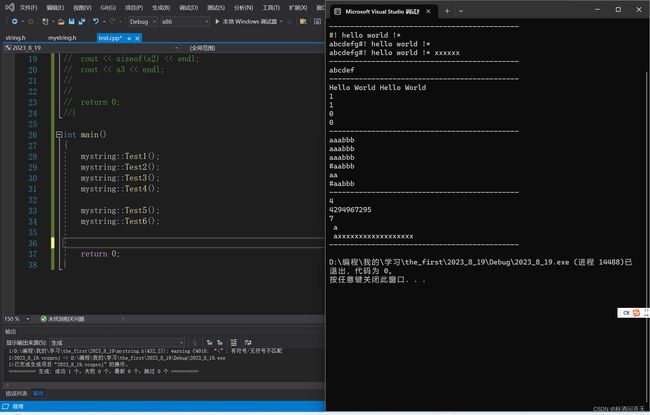- (九万字)面向2025年BOSS直聘人工智能算法工程师高频面试题解析
快撑死的鱼
人工智能回归pythonpytorch
面向2025年BOSS直聘人工智能算法工程师高频面试题解析1.机器学习(ML)理论解析机器学习是让计算机从数据中学习规律的一套方法论,包含监督学习、无监督学习和强化学习等范式。在监督学习中,给定带标签的数据,算法尝试学习从输入到输出的映射关系;无监督学习则在缺乏标签的情况下挖掘数据内在结构;强化学习则让智能体通过与环境交互、依据奖赏反馈来改进策略(Q-learning-Wikipedia)。机器学
- 人工智能与机器学习入门:基尼系数(Gini Index)和基于熵(Entropy)
基尼系数基于熵机器学习入门
在决策树应用一文中,在构建决策分类树应用决策算法时,介绍了基尼系数(GiniIndex)和基于熵(Entropy)两种算法。本文通过实例来更加深入的介绍一下这两个算法。仍然以简单的数据为例:id喜欢颜色是否有喉结身高性别1绿否165女2蓝是170男3粉否172女4绿是175男基尼系数分别对喜欢颜色是否有喉结求基尼系数如下:喜欢的颜色id喜欢颜色性别1绿女2蓝男3粉女4绿男对于姓别女分类而言,数据如
- java 实现TextRank算法提取文章摘要
melck
java算法开发语言
在Java中,常用的文章摘要提取库是“TextRank”算法。该算法从文本中提取主题和段落,并根据主题和文本中的单词计算权重。使用TextRank实现文章摘要提取具体步骤如下:寻找文章中的关键句子:首先需要分割出文章中的句子,可以使用分词库将文章拆分成句子,然后使用TextRank算法找到文章中与主题相关的句子,这些句子通常包含有标题、关键字等。计算句子的权重:针对关键句子,需要对每个句子计算权重
- 图论篇--代码随想录算法训练营第五十七天打卡| 最小生成树问题
無量空所
leetcode算法图论数据结构c++学习
题目链接:53.寻宝(第七期模拟笔试)题目描述:在世界的某个区域,有一些分散的神秘岛屿,每个岛屿上都有一种珍稀的资源或者宝藏。国王打算在这些岛屿上建公路,方便运输。不同岛屿之间,路途距离不同,国王希望你可以规划建公路的方案,如何可以以最短的总公路距离将所有岛屿联通起来(注意:这是一个无向图)。给定一张地图,其中包括了所有的岛屿,以及它们之间的距离。以最小化公路建设长度,确保可以链接到所有岛屿。解题
- DeepSeek 赋能工业软件之全流程方案
爱吃青菜的大力水手
人工智能自动化持续部署语言模型开源
deepseek赋能工业软件之全流程方案之侧重半导体FABdeepseek在工业软件中的应用场景“deepseek”大模型在工业软件领域拥有广泛的应用场景,包括以下几个方面:智能调度:利用深度学习和优化算法,根据实时数据动态调整生产计划和资源分配。它可以综合考虑订单需求、设备状态和产能限制,智能生成最优的生产排程方案,减少等待时间和切换成本。例如在汽车制造工厂,deepseek可根据订单需求和设备
- 动态规划之背包问题的Python实现
名侦探debug
Python数据结构python数据结构动态规划求解
目录1.问题描述2.动态规划之网格法3.python实现1.问题描述题目来源于《算法图解》第9章练习题9.2,如下图所示。对于背包问题,通常的做法有列举法、贪婪算法和动态规划(1)列举法:列举出所有的可能情况,再选择最优解,但当情况很多时,这种算法复杂度很高(2)贪婪算法:在容量允许范围内,每次都拿剩余物品中价值最高的,贪婪算法能够快速解决复杂度很高的问题,但通常得到的是次优解,但就对这个题目而言
- 数据挖掘十大经典算法详解(附原理解析与代码示例)
IT程序媛-桃子
华为认证数据挖掘算法经验分享华为
1.PageRank(链接分析)应用场景:搜索引擎排名、社交网络分析核心原理PageRank通过网页之间的链接关系计算网页的重要性,影响力大的网页排名更高。网页影响力=所有入链页面的加权影响力之和阻尼因子D(通常设为0.85)用于模拟用户随机访问网页的行为代码示例importnetworkxasnxG=nx.DiGraph()G.add_edges_from([("A","B"),("A","C"
- 【练习】【二分】力扣热题100 34. 在排序数组中查找元素的第一个和最后一个位置
柠石榴
输入输出力扣hot100leetcode算法c++二分
题目给你一个按照非递减顺序排列的整数数组nums,和一个目标值target。请你找出给定目标值在数组中的开始位置和结束位置。如果数组中不存在目标值target,返回[-1,-1]。你必须设计并实现时间复杂度为O(logn)的算法解决此问题。示例1:输入:nums=[5,7,7,8,8,10],target=8输出:[3,4]示例2:输入:nums=[5,7,7,8,8,10],target=6输出
- 动态规划之背包问题
于冬恋
动态规划算法
动态规划是一个重要的算法范式,它将一个问题分解为一系列更小的子问题,并通过存储子问题的解来避免重复计算,从而大幅提升时间效率。目录01背包问题完全背包问题多重背包问题二维费用背包问题(1)01背包问题给定n个物体,和一个容量为c的背包,物品i的重量为wi,其价值为应该如何选择装入背包的物品使其获得的总价值最大。可以用贪心算法,但是不一定能达到最优解,所以用动态规划解决创建一个数组dp[i][j]i
- 在瑞芯微RK3588平台上使用RKNN部署YOLOv8Pose模型的C++实战指南
机 _ 长
YOLO系列模型有效涨点改进深度学习落地实战YOLOc++开发语言
在人工智能和计算机视觉领域,人体姿态估计是一项极具挑战性的任务,它对于理解人类行为、增强人机交互等方面具有重要意义。YOLOv8Pose作为YOLO系列中的新成员,以其高效和准确性在人体姿态估计任务中脱颖而出。本文将详细介绍如何在瑞芯微RK3588平台上,使用RKNN(RockchipNeuralNetworkToolkit)框架部署YOLOv8Pose模型,并进行C++代码的编译和运行。注本文全
- 十大排序算法
myprogramc
排序算法算法数据结构
排序算法插入排序冒泡排序选择排序希尔排序计数排序快速排序1经典Lomuto分区法2经典Lomuto分区法3随机快排堆排序归并排序桶排序基数排序插入排序从i=1开始,判断nums[i-1]和nums[i]的大小,一直到nums[i]插入到自己的位置。模拟抓扑克牌的过程:将元素插入到已排序的部分,使其有序voidinsertionSort(vector&nums){for(inti=1;i=0&&nu
- 【CUDA】Pytorch_Extensions
joker D888
深度学习pytorchpythoncudac++深度学习
【CUDA】Pytorch_Extensions为什么要开发CUDA扩展?当我们在PyTorch中实现自定义算子时,通常有两种选择:使用纯Python实现(简单但效率低)使用C++/CUDA扩展(高效但需要编译)对于计算密集型的操作(如神经网络中的自定义激活函数),使用CUDA扩展可以获得接近硬件极限的性能。本文将以实现一个多项式激活函数x²+x+1为例,展示完整的开发流程。完整CUDA扩展代码解
- 侯捷 C++ 课程学习笔记:C++ 面向对象开发的艺术
孤寂大仙v
c++c++学习笔记
在侯捷老师的C++系列课程中,《C++面向对象开发》这门课程让我对面向对象编程有了更深入的理解。面向对象编程(OOP)是现代软件开发中最重要的编程范式之一,而C++作为支持OOP的语言,提供了强大的工具和特性。侯捷老师通过系统的讲解和实战案例,帮助我掌握了如何在C++中高效地使用面向对象技术。以下是我对这门课程的学习笔记和心得体会。一、课程核心内容:C++面向对象开发的关键特性{tot+=db;});returntot;}templateTaverage_list(c
- C++ C_style string overview and basic Input funcitons
狗头鹰
C++notesc++开发语言
writeinadvance最近在做题,遇到一个简单的将console的输入输出到文件中的简单题目,没有写出来。悔恨当初没有踏实地总结string相关的I/O以及与文件的操作。这篇文章旨在记录基础的字符I/O,简单常用的文件I/O操作函数。当然,你会说C++已经有一个stringclass,我们只需要#include就能够使用它带来的便捷性及强大的功能,无需烦恼细节。但知道底层的具体情况在语言的学
- 十大经典排序算法的C++实现与解析
金外飞176
算法算法数据结构c++
经典排序算法的C++实现与解析在计算机科学中,排序算法是数据处理和算法设计的基础。无论是处理大规模数据还是优化小规模数据的性能,排序算法都扮演着重要角色。本文将介绍10种经典排序算法,并提供它们的C++实现代码。这些算法包括冒泡排序、选择排序、插入排序、希尔排序、归并排序、快速排序、堆排序、计数排序、基数排序和桶排序。1.冒泡排序(BubbleSort)原理冒泡排序是最简单的排序算法之一。它通过重
- C++(23):lambda可以省略()
风静如云
C/C++c++
C++越来越多的使用了lambda,C++23也进一步的放宽了对lambda的限制,这一次,如果lambda没有参数列表,那么可以直接省略掉():#includeusingnamespacestd;voidfunc(){autof=[]{cout<<"inf"<<endl;};f();}intmain(){func();return0;}允许程序输出:inf
- BP 神经网络在考古数据分析中的应用
fanxbl957
人工智能理论与实践神经网络数据分析人工智能
BP神经网络在考古数据分析中的应用摘要:本文深入探讨了BP神经网络在考古数据分析领域的应用。首先阐述了考古数据分析的重要性以及传统分析方法的局限性。随后详细介绍了BP神经网络的结构、原理与训练算法。通过丰富的代码示例展示了如何运用BP神经网络进行考古文物的分类鉴定、年代预测以及遗址空间分布分析等任务,涵盖数据预处理、网络构建、模型训练与评估等关键环节。分析了该应用的优势与局限性,并对其在考古数据分
- DeepSeek原理介绍以及对网络安全行业的影响
AI拉呱
Deepseek人工智能
大家好,我是AI拉呱,一个专注于人工智领域与网络安全方面的博主,现任资深算法研究员一职,兼职硕士研究生导师;热爱机器学习和深度学习算法应用,深耕大语言模型微调、量化、私域部署。曾获多次获得AI竞赛大奖,拥有多项发明专利和学术论文。对于AI算法有自己独特见解和经验。曾辅导十几位非计算机学生转行到算法岗位就业。关注评审分享一起学习更多知识。1.DeepSeek公司介绍1.1DeepSeek是什么:wh
- 23种设计模式-享元(Flyweight)设计模式
萨达大
软考中级-软件设计师设计模式享元模式软考软件设计师C++行为型设计模式JAVA
文章目录一.什么是享元设计模式?二.享元模式的特点三.享元模式的结构四.享元模式的优缺点五.享元模式的C++实现六.享元模式的JAVA实现七.代码解析八.总结类图:享元设计模式类图一.什么是享元设计模式? 享元(Flyweight)设计模式是一种结构型设计模式,通过共享对象来减少内存占用和对象创建开销。它通过将对象的可共享部分与不可共享部分分离,减少重复对象的数量,从而节省内存。 享元模式的核心思
- 基于python深度学习遥感影像地物分类与目标识别、分割实践技术应用
xiao5kou4chang6kai4
深度学习遥感勘测python深度学习分类
专题一:深度学习发展与机器学习深度学习的历史发展过程机器学习,深度学习等任务的基本处理流程梯度下降算法讲解不同初始化,学习率对梯度下降算法的实例分析从机器学习到深度学习算法专题二深度卷积网络、卷积神经网络、卷积运算的基本原理池化操作,全连接层,以及分类器的作用BP反向传播算法的理解一个简单CNN模型代码理解特征图,卷积核可视化分析专题三TensorFlow与keras介绍与入门TensorFlow
- flutter pigeon gomobile 插件中使用go工具类
yujunlong3919
fluttergolangswiftkotlin
文章目录为什么flutter要用go写工具类1.下载pigeon插件模版2.编写go代码3.生成greeting.aar,Greeting.xcframework4.ios5.android6.dart中使用为什么flutter要用go写工具类在Flutter应用中,有些场景涉及到大量的计算,比如复杂的加密算法、数据压缩/解压缩或者图形处理中的数学计算等1.下载pigeon插件模版base_plu
- muzero 算法原理
战神哥
Muzero算法是一种通用的强化学习算法,它可以在没有预先设定策略的情况下进行学习。它通过模拟整个游戏进程来自我学习,并通过回报函数来评估每一步的决策。Muzero算法的核心部分是一个叫做模型的神经网络,它会对游戏的状态进行预测,预测未来的游戏状态。另一部分是策略网络,它会根据当前状态预测每一步的最优决策。Muzero算法通过不断地训练模型和策略网络,来提高它们的准确性,从而使得机器学到了如何玩游
- LLM与知识图谱融合:智能运维知识库构建
AI天才研究院
DeepSeekR1&大数据AI人工智能大模型AI大模型企业级应用开发实战AI实战计算科学神经计算深度学习神经网络大数据人工智能大型语言模型AIAGILLMJavaPython架构设计AgentRPA
1.背景介绍随着信息技术的飞速发展,IT运维管理面临着越来越大的挑战。海量的设备、复杂的网络环境、日益增长的数据量,使得传统的运维方式难以满足需求。为了提高运维效率和质量,智能运维应运而生。智能运维的核心是将人工智能技术应用于运维领域,通过机器学习、深度学习等算法,实现自动化、智能化的运维管理。其中,大语言模型(LLM)和知识图谱是两个重要的技术方向。LLM能够理解和生成自然语言,可以用于构建智能
- LQB---基础练习---十六进制转八进制
「已注销」
#LQBLQB
试题基础练习十六进制转八进制资源限制内存限制:512.0MBC/C++时间限制:1.0sJava时间限制:3.0sPython时间限制:5.0s问题描述给定n个十六进制正整数,输出它们对应的八进制数。输入格式输入的第一行为一个正整数n(1<=n<=10)。接下来n行,每行一个由09、大写字母AF组成的字符串,表示要转换的十六进制正整数,每个十六进制数长度不超过100000。输出格式输出n行,每行为
- C/C++Win32编程基础详解视频下载
择善Zach
编程C++Win32
课题视频:C/C++Win32编程基础详解
视频知识:win32窗口的创建
windows事件机制
主讲:择善Uncle老师
学习交流群:386620625
验证码:625
--
- Guava Cache使用笔记
bylijinnan
javaguavacache
1.Guava Cache的get/getIfPresent方法当参数为null时会抛空指针异常
我刚开始使用时还以为Guava Cache跟HashMap一样,get(null)返回null。
实际上Guava整体设计思想就是拒绝null的,很多地方都会执行com.google.common.base.Preconditions.checkNotNull的检查。
2.Guava
- 解决ora-01652无法通过128(在temp表空间中)
0624chenhong
oracle
解决ora-01652无法通过128(在temp表空间中)扩展temp段的过程
一个sql语句后,大约花了10分钟,好不容易有一个结果,但是报了一个ora-01652错误,查阅了oracle的错误代码说明:意思是指temp表空间无法自动扩展temp段。这种问题一般有两种原因:一是临时表空间空间太小,二是不能自动扩展。
分析过程:
既然是temp表空间有问题,那当
- Struct在jsp标签
不懂事的小屁孩
struct
非UI标签介绍:
控制类标签:
1:程序流程控制标签 if elseif else
<s:if test="isUsed">
<span class="label label-success">True</span>
</
- 按对象属性排序
换个号韩国红果果
JavaScript对象排序
利用JavaScript进行对象排序,根据用户的年龄排序展示
<script>
var bob={
name;bob,
age:30
}
var peter={
name;peter,
age:30
}
var amy={
name;amy,
age:24
}
var mike={
name;mike,
age:29
}
var john={
- 大数据分析让个性化的客户体验不再遥远
蓝儿唯美
数据分析
顾客通过多种渠道制造大量数据,企业则热衷于利用这些信息来实现更为个性化的体验。
分析公司Gartner表示,高级分析会成为客户服务的关键,但是大数据分析的采用目前仅局限于不到一成的企业。 挑战在于企业还在努力适应结构化数据,疲于根据自身的客户关系管理(CRM)系统部署有效的分析框架,以及集成不同的内外部信息源。
然而,面对顾客通过数字技术参与而产生的快速变化的信息,企业需要及时作出反应。要想实
- java笔记4
a-john
java
操作符
1,使用java操作符
操作符接受一个或多个参数,并生成一个新值。参数的形式与普通的方法调用不用,但是效果是相同的。加号和一元的正号(+)、减号和一元的负号(-)、乘号(*)、除号(/)以及赋值号(=)的用法与其他编程语言类似。
操作符作用于操作数,生成一个新值。另外,有些操作符可能会改变操作数自身的
- 从裸机编程到嵌入式Linux编程思想的转变------分而治之:驱动和应用程序
aijuans
嵌入式学习
笔者学习嵌入式Linux也有一段时间了,很奇怪的是很多书讲驱动编程方面的知识,也有很多书将ARM9方面的知识,但是从以前51形式的(对寄存器直接操作,初始化芯片的功能模块)编程方法,和思维模式,变换为基于Linux操作系统编程,讲这个思想转变的书几乎没有,让初学者走了很多弯路,撞了很多难墙。
笔者因此写上自己的学习心得,希望能给和我一样转变
- 在springmvc中解决FastJson循环引用的问题
asialee
循环引用fastjson
我们先来看一个例子:
package com.elong.bms;
import java.io.OutputStream;
import java.util.HashMap;
import java.util.Map;
import co
- ArrayAdapter和SimpleAdapter技术总结
百合不是茶
androidSimpleAdapterArrayAdapter高级组件基础
ArrayAdapter比较简单,但它只能用于显示文字。而SimpleAdapter则有很强的扩展性,可以自定义出各种效果
ArrayAdapter;的数据可以是数组或者是队列
// 获得下拉框对象
AutoCompleteTextView textview = (AutoCompleteTextView) this
- 九封信
bijian1013
人生励志
有时候,莫名的心情不好,不想和任何人说话,只想一个人静静的发呆。有时候,想一个人躲起来脆弱,不愿别人看到自己的伤口。有时候,走过熟悉的街角,看到熟悉的背影,突然想起一个人的脸。有时候,发现自己一夜之间就长大了。 2014,写给人
- Linux下安装MySQL Web 管理工具phpMyAdmin
sunjing
PHPInstallphpMyAdmin
PHP http://php.net/
phpMyAdmin http://www.phpmyadmin.net
Error compiling PHP on CentOS x64
一、安装Apache
请参阅http://billben.iteye.com/admin/blogs/1985244
二、安装依赖包
sudo yum install gd
- 分布式系统理论
bit1129
分布式
FLP
One famous theory in distributed computing, known as FLP after the authors Fischer, Lynch, and Patterson, proved that in a distributed system with asynchronous communication and process crashes,
- ssh2整合(spring+struts2+hibernate)-附源码
白糖_
eclipsespringHibernatemysql项目管理
最近抽空又整理了一套ssh2框架,主要使用的技术如下:
spring做容器,管理了三层(dao,service,actioin)的对象
struts2实现与页面交互(MVC),自己做了一个异常拦截器,能拦截Action层抛出的异常
hibernate与数据库交互
BoneCp数据库连接池,据说比其它数据库连接池快20倍,仅仅是据说
MySql数据库
项目用eclipse
- treetable bug记录
braveCS
table
// 插入子节点删除再插入时不能正常显示。修改:
//不知改后有没有错,先做个备忘
Tree.prototype.removeNode = function(node) {
// Recursively remove all descendants of +node+
this.unloadBranch(node);
// Remove
- 编程之美-电话号码对应英语单词
bylijinnan
java算法编程之美
import java.util.Arrays;
public class NumberToWord {
/**
* 编程之美 电话号码对应英语单词
* 题目:
* 手机上的拨号盘,每个数字都对应一些字母,比如2对应ABC,3对应DEF.........,8对应TUV,9对应WXYZ,
* 要求对一段数字,输出其代表的所有可能的字母组合
- jquery ajax读书笔记
chengxuyuancsdn
jQuery ajax
1、jsp页面
<%@ page language="java" import="java.util.*" pageEncoding="GBK"%>
<%
String path = request.getContextPath();
String basePath = request.getScheme()
- JWFD工作流拓扑结构解析伪码描述算法
comsci
数据结构算法工作活动J#
对工作流拓扑结构解析感兴趣的朋友可以下载附件,或者下载JWFD的全部代码进行分析
/* 流程图拓扑结构解析伪码描述算法
public java.util.ArrayList DFS(String graphid, String stepid, int j)
- oracle I/O 从属进程
daizj
oracle
I/O 从属进程
I/O从属进程用于为不支持异步I/O的系统或设备模拟异步I/O.例如,磁带设备(相当慢)就不支持异步I/O.通过使用I/O 从属进程,可以让磁带机模仿通常只为磁盘驱动器提供的功能。就好像支持真正的异步I/O 一样,写设备的进程(调用者)会收集大量数据,并交由写入器写出。数据成功地写出时,写入器(此时写入器是I/O 从属进程,而不是操作系统)会通知原来的调用者,调用者则会
- 高级排序:希尔排序
dieslrae
希尔排序
public void shellSort(int[] array){
int limit = 1;
int temp;
int index;
while(limit <= array.length/3){
limit = limit * 3 + 1;
- 初二下学期难记忆单词
dcj3sjt126com
englishword
kitchen 厨房
cupboard 厨柜
salt 盐
sugar 糖
oil 油
fork 叉;餐叉
spoon 匙;调羹
chopsticks 筷子
cabbage 卷心菜;洋白菜
soup 汤
Italian 意大利的
Indian 印度的
workplace 工作场所
even 甚至;更
Italy 意大利
laugh 笑
m
- Go语言使用MySQL数据库进行增删改查
dcj3sjt126com
mysql
目前Internet上流行的网站构架方式是LAMP,其中的M即MySQL, 作为数据库,MySQL以免费、开源、使用方便为优势成为了很多Web开发的后端数据库存储引擎。MySQL驱动Go中支持MySQL的驱动目前比较多,有如下几种,有些是支持database/sql标准,而有些是采用了自己的实现接口,常用的有如下几种:
http://code.google.c...o-mysql-dri
- git命令
shuizhaosi888
git
---------------设置全局用户名:
git config --global user.name "HanShuliang" //设置用户名
git config --global user.email "
[email protected]" //设置邮箱
---------------查看环境配置
git config --li
- qemu-kvm 网络 nat模式 (四)
haoningabc
kvmqemu
qemu-ifup-NAT
#!/bin/bash
BRIDGE=virbr0
NETWORK=192.168.122.0
GATEWAY=192.168.122.1
NETMASK=255.255.255.0
DHCPRANGE=192.168.122.2,192.168.122.254
TFTPROOT=
BOOTP=
function check_bridge()
- 不要让未来的你,讨厌现在的自己
jingjing0907
生活 奋斗 工作 梦想
故事one
23岁,他大学毕业,放弃了父母安排的稳定工作,独闯京城,在家小公司混个小职位,工作还算顺手,月薪三千,混了混,混走了一年的光阴。 24岁,有了女朋友,从二环12人的集体宿舍搬到香山民居,一间平房,二人世界,爱爱爱。偶然约三朋四友,打扑克搓麻将,日子快乐似神仙; 25岁,出了几次差,调了两次岗,薪水涨了不过百,生猛狂飙的物价让现实血淋淋,无力为心爱银儿购件大牌
- 枚举类型详解
一路欢笑一路走
enum枚举详解enumsetenumMap
枚举类型详解
一.Enum详解
1.1枚举类型的介绍
JDK1.5加入了一个全新的类型的”类”—枚举类型,为此JDK1.5引入了一个新的关键字enum,我们可以这样定义一个枚举类型。
Demo:一个最简单的枚举类
public enum ColorType {
RED
- 第11章 动画效果(上)
onestopweb
动画
index.html
<!DOCTYPE html PUBLIC "-//W3C//DTD XHTML 1.0 Transitional//EN" "http://www.w3.org/TR/xhtml1/DTD/xhtml1-transitional.dtd">
<html xmlns="http://www.w3.org/
- Eclipse中jsp、js文件编辑时,卡死现象解决汇总
ljf_home
eclipsejsp卡死js卡死
使用Eclipse编辑jsp、js文件时,经常出现卡死现象,在网上百度了N次,经过N次优化调整后,卡死现象逐步好转,具体那个方法起到作用,不太好讲。将所有用过的方法罗列如下:
1、取消验证
windows–>perferences–>validation
把 除了manual 下面的全部点掉,build下只留 classpath dependency Valida
- MySQL编程中的6个重要的实用技巧
tomcat_oracle
mysql
每一行命令都是用分号(;)作为结束
对于MySQL,第一件你必须牢记的是它的每一行命令都是用分号(;)作为结束的,但当一行MySQL被插入在PHP代码中时,最好把后面的分号省略掉,例如:
mysql_query("INSERT INTO tablename(first_name,last_name)VALUES('$first_name',$last_name')");
- zoj 3820 Building Fire Stations(二分+bfs)
阿尔萨斯
Build
题目链接:zoj 3820 Building Fire Stations
题目大意:给定一棵树,选取两个建立加油站,问说所有点距离加油站距离的最大值的最小值是多少,并且任意输出一种建立加油站的方式。
解题思路:二分距离判断,判断函数的复杂度是o(n),这样的复杂度应该是o(nlogn),即使常数系数偏大,但是居然跑了4.5s,也是醉了。 判断函数里面做了3次bfs,但是每次bfs节点最多
